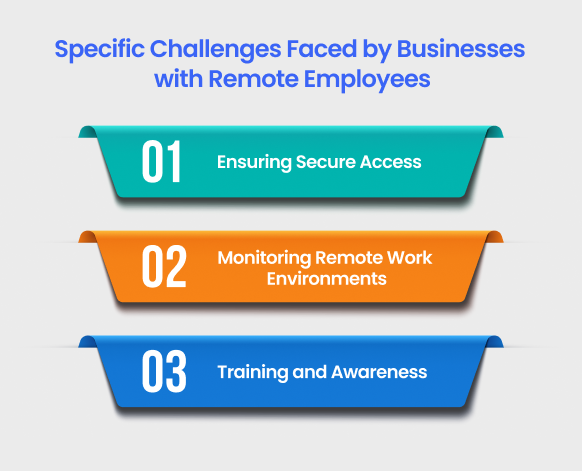Cybercrime damages are predicted to cost the world $10.5 trillion annually by 2025.” — Cybersecurity Ventures. Businesses these days face a growing threat from cybercriminals. As cyberattacks become more frequent and sophisticated, the need for robust cybersecurity measures has never been more critical.
Cyber insurance has emerged as a crucial component in the battle against cyber threats. It not only provides a financial safety net for organizations but also encourages the adoption of better cybersecurity practices. This blog explores how cyber insurance drives enhanced cybersecurity, supported by real-life data, statistics, and incidents.
The Growth of Cyber Insurance
Market Size and Growth Statistics

The cyber insurance market has seen exponential growth in recent years. In 2020, the global market was valued at $7.06 billion, and it is projected to reach $20.43 billion by 2027, reflecting a compound annual growth rate (CAGR) of 24%.
This growth is driven by the increasing number and sophistication of cyberattacks, as well as the rising awareness among businesses about the importance of cyber risk management.
Factors Driving the Adoption of Cyber Insurance
Several factors contribute to the rising adoption of cyber insurance:
- Increase in Cyberattacks: The frequency and severity of cyberattacks have escalated, making cyber insurance a necessity for many businesses.
- Regulatory Requirements: Many industries are subject to regulations that mandate cybersecurity measures and incident reporting. Cyber insurance helps companies comply with these regulations.
- Financial Protection: Cyber insurance provides financial coverage for losses incurred due to cyber incidents, helping businesses recover without devastating financial impacts.
- Risk Management: Companies recognize the importance of managing cyber risk proactively, and cyber insurance is a key component of a comprehensive risk management strategy.
How Cyber Insurance Encourages Better Cybersecurity Practices
1. Financial Incentives for Adopting Strong Security Measures
Premium Discounts and Reduced Costs
One of the primary ways cyber insurance encourages better cybersecurity practices is through financial incentives. Insurers often offer premium discounts to organizations that implement robust cybersecurity measures.
For example, companies that deploy multi-factor authentication (MFA), encryption, regular security audits, and incident response plans can benefit from significantly lower premiums. This incentivizes businesses to invest in advanced security technologies and practices to reduce their insurance costs.
Lower Deductibles for Enhanced Security
Some cyber insurance policies offer lower deductibles for businesses that demonstrate strong cybersecurity postures. By reducing the amount companies need to pay out-of-pocket in the event of a claim, insurers encourage the adoption of comprehensive security measures.
This can include the implementation of firewalls, intrusion detection systems, and continuous monitoring.
2. Requirements and Guidelines Set by Insurers
Security Assessments and Audits
Before issuing a policy, insurers often require a thorough security assessment of the applicant’s systems and processes.
These assessments help identify vulnerabilities and areas for improvement. Based on the findings, insurers may provide guidelines and recommendations for enhancing security measures. Regular audits and reassessments ensure that companies maintain high security standards over time.
Mandatory Security Measures
Insurers may mandate the implementation of specific security measures as a condition for coverage. Common requirements include:
- Data Encryption: Ensuring that sensitive data is encrypted both in transit and at rest.
- Regular Patching and Updates: Keeping software and systems up to date with the latest security patches.
- Employee Training: Conducting regular cybersecurity training for employees to mitigate human error and phishing attacks.
- Incident Response Plans: Developing and maintaining a comprehensive incident response plan to quickly address and mitigate cyber incidents.
3. Impact on Company Policies and Employee Training
Enhanced Security Policies
The requirements and guidelines set by cyber insurers often lead to the development of more robust security policies within organizations. These policies cover various aspects of cybersecurity, including access controls, data protection, and incident response.
By adhering to these policies, companies can reduce their risk of cyber incidents and improve their overall security posture.
Employee Training and Awareness Programs
Human error is a significant factor in many cyber incidents. Cyber insurance encourages companies to invest in regular training and awareness programs for employees.
These programs educate staff about the latest cyber threats, safe online practices, and how to recognize and respond to phishing attempts. Enhanced employee awareness significantly reduces the likelihood of successful cyberattacks.

Benefits of Cyber Insurance for Businesses
Comprehensive Coverage
Cyber insurance policies provide comprehensive coverage for various costs associated with a cyber incident, including:
- Incident Response Costs: Covering expenses for forensic investigations, legal fees, and public relations efforts
- Legal Fees: Paying for legal defense and settlements related to data breaches and privacy violations.
- Notification Costs: Covering the costs of notifying affected customers and providing credit monitoring services
Support for Breach Recovery and Mitigation
In the event of a cyber incident, it provides crucial support for breach recovery and mitigation. This includes access to cybersecurity experts who can help contain and remediate the breach, as well as public relations professionals who can manage the fallout and protect the company’s reputation.
Liability Coverage and Protection Against Regulatory Fines
Cyber insurance offers liability coverage for data breaches, protecting businesses from financial losses due to lawsuits and regulatory fines.
This is particularly important for industries that handle sensitive customer data, such as healthcare, finance, and education. By mitigating the financial impact of a breach, it helps companies maintain stability and continue operations.
Case Studies and Real-Life Incidents
Case Study: Ransomware Attack on a Healthcare Provider

Phishing Attack on a Financial Institution

Challenges and Considerations
High Premiums and Cost Considerations
The rise in ransomware and other cyber threats has led to increased premiums for cyber insurance. In 2022, cyber insurance premiums increased by 50% due to higher insurer losses from ransomware attacks.
For many businesses, especially small and medium-sized enterprises (SMEs), the cost of premiums can be a significant barrier.
Strict Underwriting Criteria and Necessary Security Measures
Insurance providers have become more stringent in their underwriting criteria, requiring businesses to demonstrate robust cybersecurity measures. This includes the implementation of technical controls, employee training, and incident response plans.
Meeting these criteria can be challenging for organizations with limited resources.
Potential Gaps in Coverage and Limitations of Policies
It is important for businesses to understand the limitations of their cyber insurance policies. Some policies may not cover certain types of cyber incidents, such as social engineering attacks or third-party vendor breaches. Companies must carefully review their policies to ensure they have adequate coverage for their specific risks.
Impact of Remote Work on Cybersecurity and Insurance
Increased Risks Associated with Remote Work
The shift to remote work has significantly increased the attack surface for organizations. Employees accessing applications, assets, and systems through private networks and personal devices expose organizations to new levels of risk.
The increased attack surface has resulted in new security gaps. For example, remote work has been associated with a 50% increase in worldwide internet traffic, creating new opportunities for cybercrime.
Adjustments in Policies to Cover Remote Work Scenarios
To address the risks associated with remote work, many cyber insurance policies have been adjusted to cover scenarios specific to remote work environments. This includes coverage for personal devices, home networks, and remote access vulnerabilities. Insurers also encourage businesses to implement security measures tailored to remote work, such as VPNs, secure access protocols, and employee training on remote work security.
Specific Challenges Faced by Businesses with Remote Employees

Future Trends in Cyber Insurance
Integration of Advanced Technologies (AI, ML) for Risk Assessment
The future of cyber insurance will see greater integration of advanced technologies like artificial intelligence (AI) and machine learning (ML) for risk assessment and management.
These technologies can analyze vast amounts of data to identify patterns and predict potential cyber threats, allowing insurers to offer more accurate and tailored coverage.
Changes in Regulatory Landscapes and Their Impact on Policies
As governments around the world implement stricter data protection regulations, businesses will need to ensure their cyber insurance policies comply with these regulations.
This includes coverage for fines and penalties related to regulatory breaches and support for meeting regulatory requirements.
Predictions for the Future Growth of Cyber Insurance
The cyber insurance market is expected to continue growing rapidly. Factors driving this growth include the increasing prevalence of cyberattacks, the evolving threat landscape, and the rising awareness of the importance of cyber risk management.
As businesses become more digital and interconnected, the demand for comprehensive cyber insurance coverage will continue to rise.
Mitigata: Your Smart Cyber Insurance Partner

Cyber insurance is not just a financial safety net but a catalyst for improving cybersecurity practices across organizations.
By incentivizing better security measures, providing incident response support, and encouraging continuous improvement, cyber insurance helps organizations mitigate the risks of cyber threats effectively.
At Mitigata, we understand the importance of robust cybersecurity and the role of cyber insurance in achieving it.
Our comprehensive cyber insurance solutions are designed to protect your business from the financial impact of cyber incidents while promoting best practices in cybersecurity. Contact us today to learn how Mitigata can help you secure your digital future.

